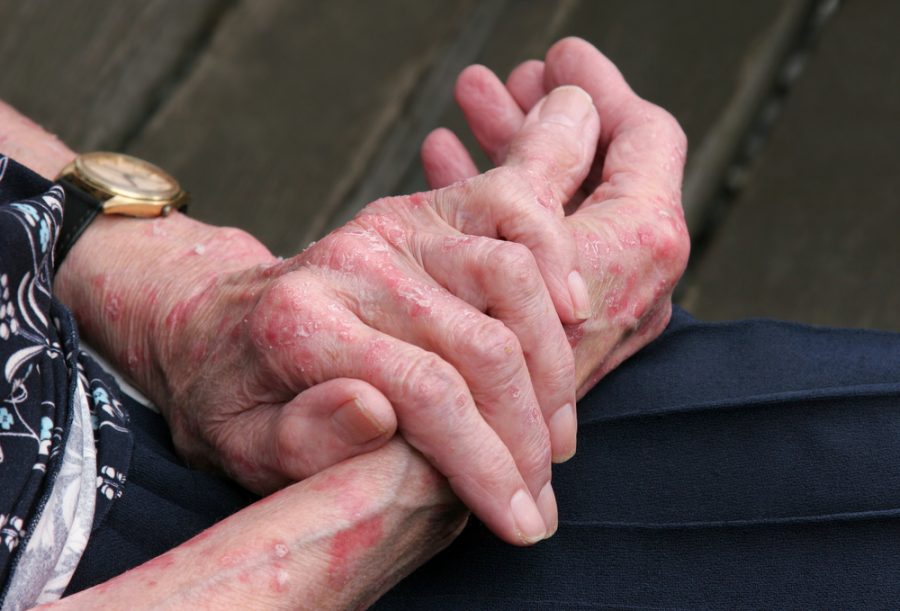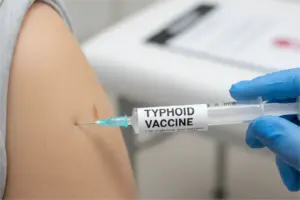
SINGAPORE – The prevalence of eczema in Singapore has remained relatively stable over the past decade, affecting about one in five children and one in 10 adults. However, the number of people suffering from moderate to severe forms of the disease – with skin that may ooze, crust, or bleed – appears to be rising.
Both KK Women’s and Children’s Hospital (KKH) and the National Skin Centre (NSC) have reported an increase in patients with moderate to severe atopic eczema, although the exact numbers are unclear, as no recent studies have been conducted.
Atopic eczema, or atopic dermatitis, is the most common form of eczema. It is not a condition individuals are born with; it typically develops within the first few weeks or months of life. KKH, which handles about 20 new atopic eczema cases daily, is seeing more children with moderate and severe forms of the disease. These children now make up about 20% to 30% of the hospital’s eczema patients, according to Associate Professor Mark Koh, head and senior consultant in the hospital’s dermatology department.
At NSC, Dr. Yew Yik Weng, senior consultant dermatologist and consultant-in-charge of the Eczema Clinic, said that while the overall number of eczema cases at the centre has remained largely stable, the number of moderate to severe cases could have risen slightly.
In the year ending March 31, 2023, the centre handled more than 14,000 new eczema cases. The doctors attribute the rise in eczema cases to genetic factors and Singapore’s heat and humidity. In addition to environmental factors, moderate to severe cases could be linked to immune dysregulation in these patients, Dr. Yew noted.
Prof. Koh further explained that stress is another significant trigger for atopic eczema flare-ups. Interestingly, the incidence of atopic eczema is higher in individuals from higher socio-economic backgrounds, although the reasons for this remain unclear.
Genetics plays a crucial role in the development of eczema. “If one parent has an atopic condition, each child has a 40% to 50% chance of developing atopic dermatitis (AD); if both parents have atopic conditions, the likelihood rises to 70% to 80%,” said Prof. Koh. “Mutations in the filaggrin gene, which plays an important role in skin barrier function, have been found in some, but not all, AD patients. However, other genetic causes have yet to be fully explained.”
New Treatments: Effective, Yet Costly
Prof. Koh noted that without appropriate long-term treatment, eczema patients often get caught in a cycle of frequent, unpredictable flare-ups, unsightly lesions, and persistent itching, pain, and inflammation.
The emergence of dupilumab – a biologic drug sold under the brand name Dupixent – a few years ago, has been a game-changer for treating moderate to severe atopic eczema. Prior to this, treatment options were limited. For mild to moderate cases, treatment typically involves lifestyle changes, avoiding triggers, topical steroids, and moisturizers. However, patients with moderate to severe forms may require more intensive treatments, such as phototherapy, oral immunosuppressants, dupilumab, or newer drugs like Janus Kinase (JAK) inhibitors.
Dr. Yew added that dust mite allergies also contribute significantly to eczema in Singapore, as dust mites thrive in humid environments. In general, heat, sweat, and dust are the most common triggers and aggravating factors for eczema in the local climate.
Raising Awareness and Seeking Early Treatment
Healthcare professionals emphasize the importance of early diagnosis and treatment to prevent complications. Parents are urged to seek medical advice if their child shows persistent symptoms, including red, itchy, and inflamed skin, to manage the condition effectively and improve their quality of life.
The rising prevalence of moderate to severe eczema underscores the need for public awareness and access to innovative treatments to support patients and their families in managing this challenging condition.








